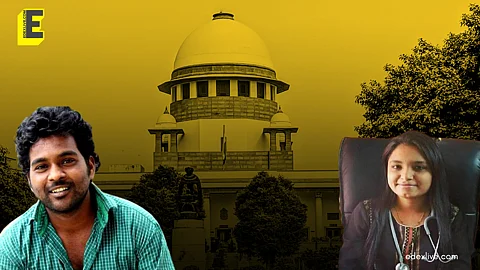

The Supreme Court of India today, January 3, directed the University Grants Commission (UGC) to collect and submit comprehensive data on the implementation of anti-discrimination guidelines in higher education institutions (HEIs).
The directive was issued during the hearing of a plea filed by the mothers of Rohith Vemula and Payal Tadvi, two students who tragically lost their lives due to alleged caste-based discrimination in educational institutions.
A bench comprising Justice Surya Kant and Justice Ujjal Bhuyan asked the UGC to provide information on the establishment of Equal Opportunity Cells, the number of complaints received under the UGC Regulations of 2012, and the action taken reports. Senior Advocate Indira Jaising and Advocate Disha Wadekar represented the petitioners.
The court also sought a response from the Union Government and the National Assessment and Accreditation Council (NAAC) on the compliance of universities across India with these anti-discrimination guidelines.
Appearing for the petitioners, Senior Advocate Indira Jaising urged the Supreme Court to seek data on the establishment of Equal Opportunity Cells and dedicated websites for addressing caste-based discrimination, as mandated by the UGC Regulations of 2012.
“Out of the 820 or more central, state, and deemed universities, how many have actually appointed Equal Opportunity Cells under the regulations, and how many have not? In 2017, when the UGC asked this question, only 419 universities responded. Among those responses, when asked whether they had received complaints under the regulations, many provided vague replies such as ‘not applicable,’” she noted during the hearing.
Jaising further pointed out a troubling statistic, stating that between 2004 and 2024, 115 student deaths were reported in Indian Institutes of Technology (IITs) alone, with a disproportionately high number involving SC/ST students.
The apex court said that the matter will be heard periodically.
Both Vemula and Tadvi's deaths brought national attention to the issue of caste discrimination in educational institutions.
Now, Radhika Vemula and Abeda Tadvi have been at the forefront of this legal battle since 2019, seeking justice for their children and systemic changes to prevent similar tragedies. Their plea highlights the pervasive caste-based harassment in educational institutions that led to Rohith’s suicide in 2016 and Payal’s in 2019.
